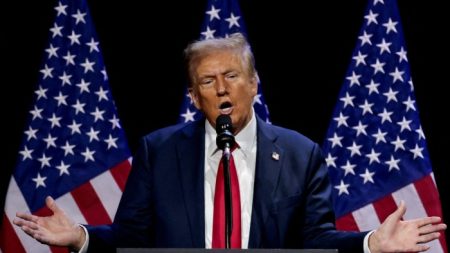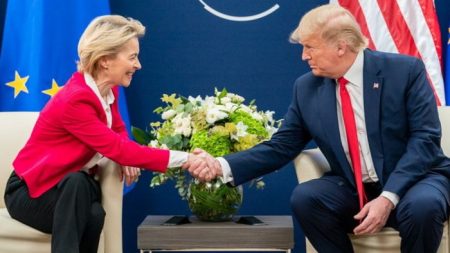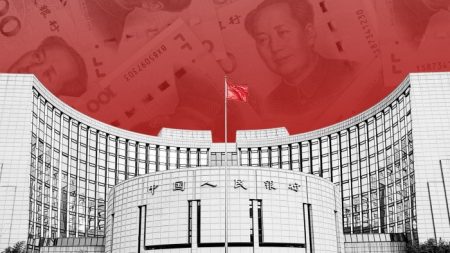Unlock the Editor’s Digest for free
Roula Khalaf, Editor of the FT, selects her favourite stories in this weekly newsletter.
Ukraine has warned that political squabbling between EU capitals on a fresh financial package for Kyiv is putting the country’s “macro-financial stability” at risk, compounding concerns over future funding from the US.
Brussels has proposed a €50bn package to support Ukraine’s finances for the next four years as part of a broader request for EU governments to top up the bloc’s common budget. This has sparked months of political wrangling between member states with no guarantee a deal will be struck by the end of the year.
The uncertainty over future EU funding comes as the White House has also so far failed to convince Congress to support additional funding for Kyiv, amid partisan divisions and competing demands to provide assistance to Israel in its war against Hamas.
“We need money in January to keep running,” Ukraine’s deputy prime minister Olha Stefanishyna told the Financial Times. “The timing is pressing, and we really need to have the clarity of what happens from January 1 . . . to lead to a lack of disruption in the financial and macro-financial stability in Ukraine.”
Stefanishyna, who is in charge of Ukraine’s relations with the EU and Nato, said that while President Volodymyr Zelenskyy’s government was hopeful that the EU funding proposal would eventually be agreed, the delay was a cause for concern.
“So we are really positive, but probably we have to have sort of a safe scenario to make sure that [while] it takes necessary time to adopt this decision, it’s not disrupting the ongoing financial framework,” she told the FT’s Global Boardroom event on Friday.
The EU’s 27 member states broadly support the funding for Ukraine, which consists of €17bn in grants and €33bn in long-term loans. But they cannot agree on an additional €50bn in EU budget top-up for other expenses including migration and interest repayments on common debt that the European Commission has decided to wrap into one proposal.
Diplomats from across the bloc have called for the commission to separate the Ukraine funding from the other expenditures, in order to reassure Kyiv. But Brussels has repeatedly rejected that request, arguing that it would scupper its chances of obtaining approval for the parts of the top-up that are not related to Ukraine.
“We have put forward a comprehensive, well-balanced proposal. It addresses a series of well identified and justified budgetary needs across a range of policy priorities,” said Eric Mamer, spokesman for the commission. “Our discussions with member states therefore focus on the overall package.”
EU leaders will meet at a summit in December to discuss the budget top-up. Any additional money not redistributed from other parts of the EU budget will have to be covered by national contributions.
Member state diplomats have warned that it is not guaranteed the 27 leaders will be able to reach an agreement at the summit, delaying any deal — and decision on Ukraine’s financial support — into 2024.
“We’re all ready to sign off on the Ukrainian €50bn, all they need to do is give us the opportunity,” said one senior EU diplomat. “But the commission is taking a maximalist position here and seeking to use Ukraine to get their other priorities funded.”
In a separate interview at the FT Global Boardroom event, Czech president Petr Pavel said Ukraine was likely to come under growing pressure next year to begin negotiations with Russia to end the war.
“We will see more war fatigue on both sides . . . and much more pressure by those affected both directly and indirectly,” Pavel said. “We will see elections in Russia, possibly Ukraine and also the United States. All these effects may eventually lead to a negotiation.”
He stressed that western capitals should not push Kyiv into talks and the two sides were at present too far apart.
Pavel, a former general and head of Nato’s military committee played down the threat of the US weakening its commitment to or even withdrawing from the alliance if Donald Trump returned to the White House. But he said Europeans powers needed to be able act through Nato without relying on Washington.
“Within Nato we need to have a discussion about how we can better institutionalise the European pillar not to be so dependent on the United States. It’s about preparing for a situation where the United States will be busy elsewhere.”
Read the full article here












